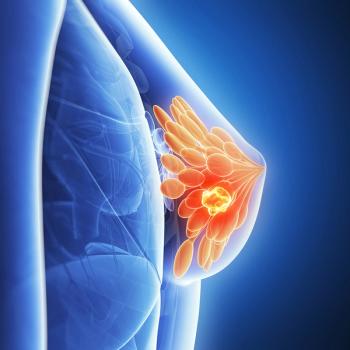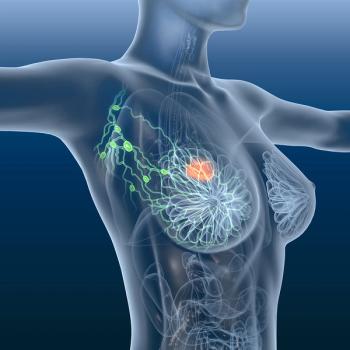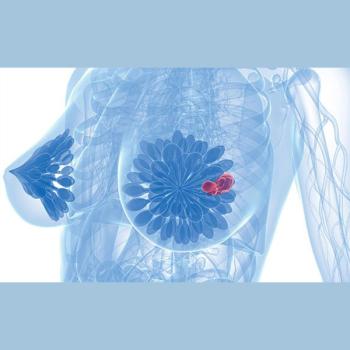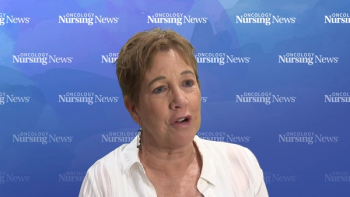
Breast Cancer
Latest News
Latest Videos

More News

Patients with ESR1-mutated, ER-positive, HER2-negative, advanced breast cancer experienced an increase in PFS with vepdegestrant compared with fulvestrant.

The phase 3 INAVO120 trial showed that overall survival significantly improved with the addition of inavolisib to palbociclib and fulvestrant in PIK3CA-mutant, hormone receptor–positive, HER2-negative, endocrine-resistant advanced breast cancer.

Oncology nurses can help advocate for AI-assisted diagnostic improvements.

Neoadjuvant ribociclib plus endocrine therapy showed pCR rates comparable to chemo in HR-positive, HER2-negative early breast cancer.

T-DXd followed by THP improved pCR in high-risk, early-stage HER2+ breast cancer in the phase 3 DESTINY-Breast11 trial.

Approvals in oncology during April included treatments for breast cancer, colorectal cancer, and more.


When treating patients with hormone-receptor positive, HER2-negative metastatic breast cancer, mutations necessitate the prioritization of quality of life.

Assessment of psychological needs and offering tailored interventions immediately after BCS helps patients with breast cancer in the outpatient setting.

Nurse practitioners should listen to patients’ concerns and be ready with questions when it comes to germline testing, according to an expert.

Social determinants of health like transportation and financial increased the occurrence of psychoneurological symptoms in breast cancer survivors.

Using liquid biopsies to test for ESR1 mutations in breast cancer is more feasible for patients and has quicker turnaround times.

Katherine Cohen, MSN, FNP-C, provided insights on what to consider when treating patients with HR+, HER2- breast cancer in the second line of treatment.

Debriefing after patient loss, supporting patients at the end of life, and finding outlets outside of work can help oncology nurses avoid burnout.

The presence of biomarkers, even in small amounts, can shape the course of treatment for a patient, says Andy Guinigundo, MSN, RN, CNP, ANP-BC.


Jessie Desir, PhD, RN, AMB-BC, OCN, explained that comprehensive disease and treatment education are essential to adherence for patients with breast cancer.

Oncology nurses and APPs provide support and can help to facilitate conversations with patients and families during end-of-life care.

Restaging cancer can be an unfamiliar space, but with more experience, APPs can rely less on MDs for guidance in such cases.

Working with multidisciplinary teams and educating patients are key to treating patients with cancer while navigating newly approved treatments.

Working with interdisciplinary teams and nurse navigators to coordinate care across specialties is a facet of oncology nursing that may be overlooked, says an expert.

Patricia Jakel, MN, RN, AOCN, emphasized that the bond oncology nurses have with patients with cancer necessitates honest and often difficult conversations.

Two denosumab biosimilars have been approved by the FDA for all previously approved uses for the reference drugs in cancers and osteoporosis.

Jessie Desir, PhD, RN, AMB-BC, OCN, discussed the need for awareness about cancer subtypes and their prevalence in certain populations.

Although participants in the study had greater rates of nonadherence postintervention, those who reported nonadherence at baseline saw some increase in adherence.









